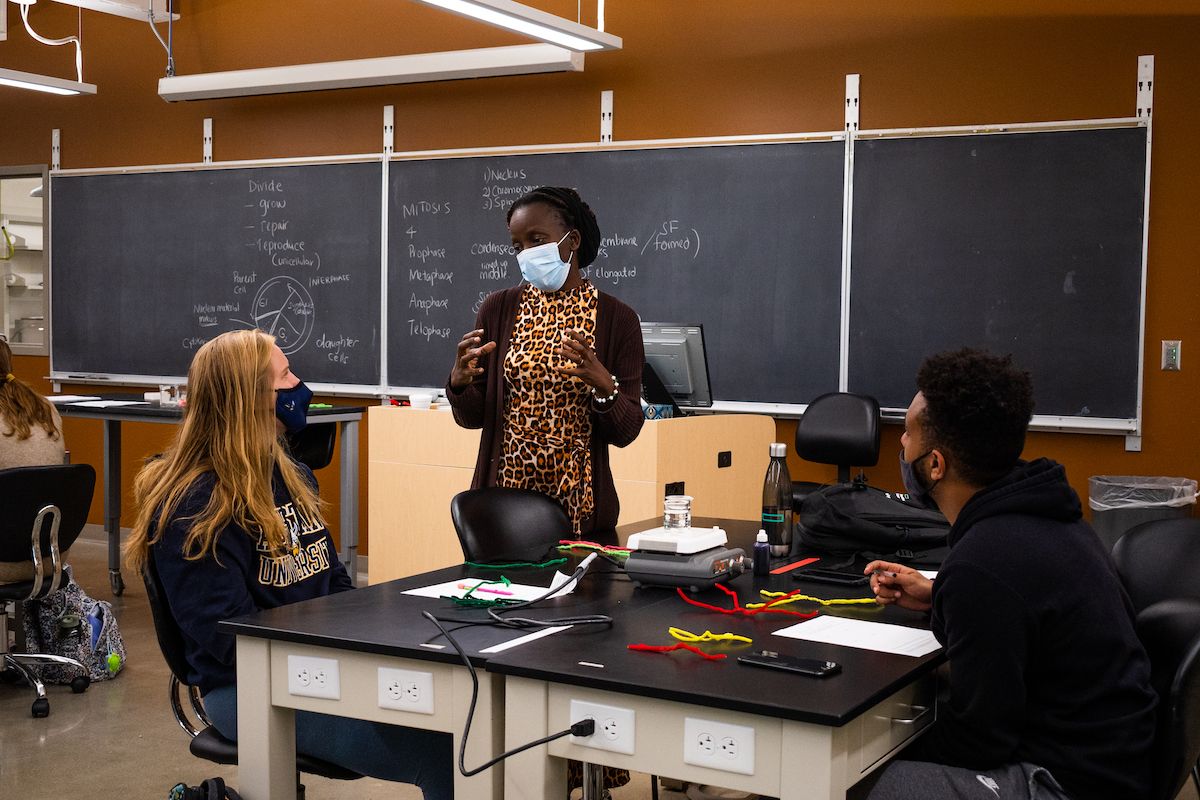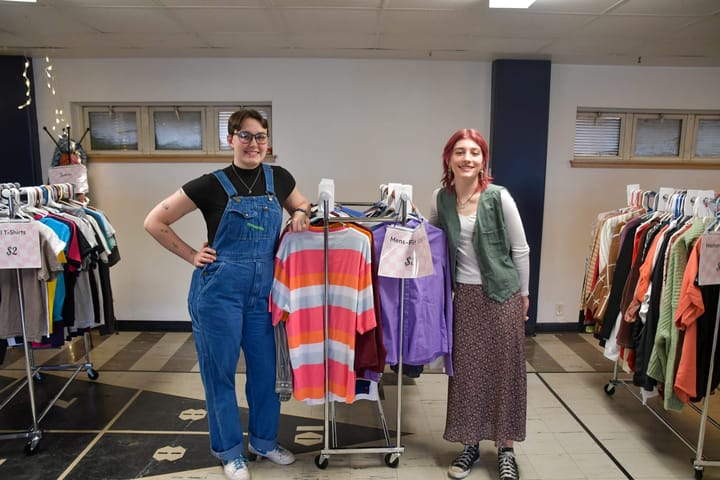Scholarships for Kenyan students founded by biology professor receive $570 from ASA

The Augustana Student Association recently voted to fund $570 in scholarships at a school in Kenya that has ties to the university
The scholarships will be for Mudhiero Secondary, located in western Kenya. The resolution, introduced by senator Andrew Struck, gives money to fully fund three students for a school year, which will cost $90 per student, and partially fund 10 students, which will cost $30 each.
The scholarship program was founded by Augustana biology professor Sally Mallowa and her family. They started the Sam and Hannah Obura Education Award as a way to honor their parents and their dedication to education by giving back to Mudhiero, where their father and mother attended school.
“I never had any doubt that I would be able to go to school,” Mallowa said. “You lacked other things, but you never doubted that you were going to school. You might go late, you might not have enough school things, but you were going.”
With the support of her parents, Mallowa received her doctoral degree from Iowa State University in 2015. As she was inviting her father, Samuel Obura, to her graduation ceremony, he mentioned that he had gone to school in America but never graduated, which Mallowa had not previously known about.
“My perspective of my dad was my dad was a farmer, lived in the village,” Mallowa said. “He’s very, very humble, very soft spoken.”
Obura also told Mallowa about his thesis project on the Kenyan Constitution that he wrote while studying at the University of Cincinnati in 1967, mentioning that he would like to have it back someday. Mallowa sent an email to the university to ask if they could locate it, where the message quickly made its way up to university leadership.
“They forwarded it through the ranks, and I had written it from my phone, and it didn’t even have punctuation,” Mallowa said.
As a result of the email, Obura was invited back to walk through graduation at the University of Cincinnati in May 2015. He also received a hard copy of his dissertation — since the university had located it almost 50 years down the road.
“I was quite excited,” Obura said. “I had been waiting for a long time to go and graduate.”
After all of this, Mallowa felt that she had found a way to “tie everything together.” Her father and mother had gone to school at Mudhiero, and she and her family wanted to give back to the community that had helped Obura end up at college in America.
Festo Obura, Samuel and Hannah Obura’s son and Mallowa’s brother, said his parents have been sponsoring education in their village for decades. Creating the scholarship fund “formalized” what the Oburas had already been doing and honors their commitment to education.
“Dad and mama always helped in the village to see that other persons get educated,” Festo Obura said. “Even when we were growing up, there would always be somebody […] who they were assisting in paying school fees for. And so the award more or less formalizes something that has been going on for quite a while.”
In 2015, Mallowa and her family started a scholarship award at Mudhiero for three students, which was about $200.
Since then, the number of scholarships has increased, with awards sponsored by Augustana student organizations with ties to Mallowa, such as Tri-Beta and Biology Club. Other organizations and families have also donated.
As the number of scholarships rose, so did the number of applicants from Mudhiero, increasing from nine to over 50 in just a few years.
ASA got involved in the award program after Mallowa had Struck in one of her biology classes. He built a new website for the award and introduced the scholarship resolution at the last meeting.
Struck said that although student fees are usually used on campus, ASA senators can and should introduce resolutions that benefit off-campus causes as well.
“It is critical for senators to do what they can to support causes specifically on campus,” Struck said. “However, the ASA senate receives so much money in funding that potential to do good and to support greater causes is lost when senators don’t bring forth resolutions that impact people outside of this campus community.”
Mallowa said she’s excited to have ASA’s support behind the awards, noting that they are the third club on campus to support them. Overall, she said it has been inspiring to see how many people believe in her family’s cause and want to help keep it going.
“The award is something that keeps surprising us,” Mallowa said.



